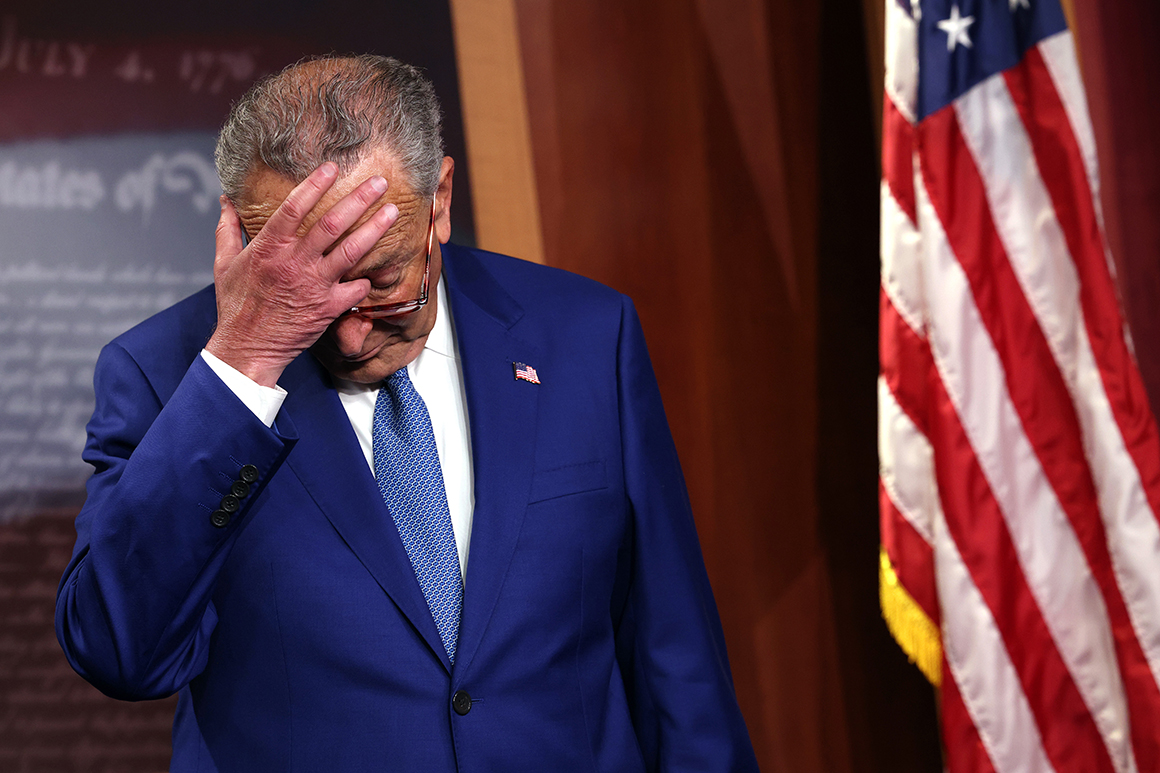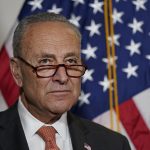Senate Majority Leader Chuck Schumer said Thursday that he will tee up a vote next week on taking up the chamber’s bipartisan infrastructure proposal, a hardball bid to force consensus on President Joe Biden’s domestic agenda before August.
The Senate is expected to vote on Wednesday on advancing to a debate on the bipartisan plan to spend nearly $600 billion on roads, bridges and broadband that Biden endorsed last month. The vote to break a filibuster on proceeding to the bill will need 60 votes, and at least 10 Republicans — double the number of GOP senators who joined the president at the White House to tout the agreement.
As of Thursday morning, however, the bipartisan negotiators had yet to agree on legislative text for the proposal Schumer aims to force a vote on. And they’re are unlikely to meet their self-imposed deadline of Thursday to finish that job, according to two sources familiar with the talks.
While working groups within the cross-aisle group of 22 senators will convene again Thursday, members still need to resolve key disagreements over how to pay for the $1.2 trillion physical infrastructure deal that President Joe Biden has thrown his weight behind. The bipartisan group met Tuesday evening and made progress, but a host of questions about spending priorities also remain unanswered.
Members of the group are racing to turn the bipartisan framework they announced last month into legislative text. Their goal is generating text that can be ready for floor action sometime next week.
Schumer has vowed to put the proposal to fund roads, bridges and other concrete projects on the floor before Congress’ August recess. Meanwhile, Senate Budget Committee Democrats announced earlier this week that they’d agreed to spend $3.5 trillion on a separate, party-line social spending package.
Both the physical infrastructure and social spending bills are top priorities for Biden, who attended a Senate Democratic caucus lunch Wednesday.
But it’s not clear yet whether the bipartisan infrastructure proposal can win the 10 GOP votes it would need to overcome a filibuster. Several Republicans have expressed concerns about its financing and are waiting for an official score from the Congressional Budget Office once the bill’s text is completed.
Senate Minority Leader Mitch McConnell has withheld judgment so far on the bipartisan plan, encouraging his members to view it as a separate effort from Democrats’ $3.5 trillion bill.





















